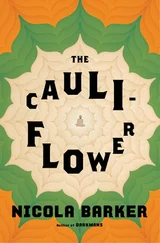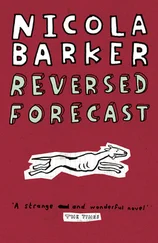So let me just, uh , paraphrase, if I may. And compare.
Kafka describes the Hunger Artist on page one (I’ve highlighted the important words and phrases in bold, to further ease the comparison):
(1) He’s dressed in black( tick for Blaine).
(2) He is ‘ self-contained,’ and ‘ courteous’…( tick, tick ; Blaine’s nothing if not both).
(3) He answers questions with a ‘ constrained smile’ (big tick ).
(4) Every so often he withdraws, into a kind of thoughtful trance, where nothing can distract him ( Tickus Majorus ).
(5) Next to him is a large clock( tick —although Blaine’s is digital).
(6) Every so often he takes a small, restrained sip of waterfrom a cup ( tick , Blaine swigs his straight from the bottle).
Okay, so before you go and get all narky on me, I know full-well that the art of hunger-striking isn’t going to be something which a person necessarily ‘makes their own’. I mean there’s only so much an individual can do to innovate in this field (apart from, say, riding on a tricycle, while fasting, which would — quite frankly — be utterly ridiculous). Even so, I think the comparisons are telling (okay, Jalisa was right. Bully for Jalisa. Hip hip etc.).
In the story, the Hunger Artist (note ‘artist’) has ‘watchers’ to keep an eye on him. Butchers, mainly (nobody really knows why, exactly). He pays them for their services by feeding them a huge breakfast each morning (which is consumed — with palpable relish, directly in front of him)…
(7) The ‘watchers’ eatin front of him ( tick , cf. the burger van).
Sometimes the watchers huddle up in a corner and play cards together. They don’t take the watching seriously. This drives the Hunger Artist crazy, because he wants people to guard him, he wants to dispel all doubts about the fact that he’s really starving. He needs people to know that he’s not cheating.
Kafka says that all initiates into hunger-striking know that it would be literally impossible to cheat if you were even remotely serious about it. This is because the fast is primarily against oneself (not the watchers or the audience). It’s almost entirely an ‘interior’ act.
He’s definitely got a point there. Fasting is about endurance. Maybe some people confuse the concept of a fast with the idea of — say — a diet. When you diet you are hoping to achieve some kind of result (weight loss). If you cheat, then maybe you don’t lose quite as much weight that week as you might’ve hoped, but the diet continues. The diet is predicated on the end results , not on the actual process of dieting.
A fast is entirely different. When you cheat on a fast, it’s no longer a fast. The act of fasting is predicated entirely — nay exclusively — on not eating . To eat on a fast would be like spending six months reading War and Peace (entirely for your own pleasure) but not actually digesting the words, just sitting, every evening, and holding the book, turning the pages, moving your eyes etc. but taking nothing in.
What an unholy waste of energy. How utterly self-defeating.
Kafka readily admits in his story that suspicion is ‘a necessary accompaniment’ to professional fasting. This is because (at the time of writing) nobody could possibly hope to watch the Hunger Artist for 24 hours a day, solid.
Okay. So in Blaine’s case ‘progress’ has made this possible. He’s being filmed. He’s live on Sky. The hungry American has Moroccan chamber maids and Antipodean businessmen watching him at every available opportunity, waiting — just waiting —to catch him out. Blaine has the entire world observing. Millions of eyes, all focusing on him.
But still we doubt ( Wow . Feels kinda strange for me to be lying here and pencilling in Kafka as a pessimistic light-weight. If Kafka could only see the lengths Blaine and his people have had to go to prove his legitimacy (the water testing, the dispassionate 24-hour scrutiny etc.) only to still— still —be doubted… Man , I honestly think the sallow Czech might crack a dry smile. I do).
Now here’s the crux of the story: Kafka says that in the Art of Fasting, only the Fasters themselves can know, 100 per cent, that they aren’t cheating. And this makes him — I’m gonna steal a sentence, but I’ll do it in a whisper, ‘The sole completely satisfied spectator of his own fast.’
Cool, huh ? Basically, Kafka’s saying that fasting is intrinsically unsatisfactory as a spectator sport.
(And to think that Blaine read this, then calmly continued on with the project. Or maybe— damn you, Bly — that’s why …The perverse fucker.)
In case you were wondering, I still haven’t reached the narrative crux yet. The crux is this: the Hunger Artist — even when he is legit and he knows he is — is also dissatisfied with his own fasting. This (Kafka claims, but merely in the case of his own fictional character, obviously) is because he alone knows how easy (Kafka’s word) it is to fast. There’s no trick to it. He’s not doing anything to make it so — there’s no ‘knack’. He just happens to find the whole process fairly effortless.
Baldly speaking, Kafka’s hero loves to fast (Some people really thrill to that whole ‘endurance’ groove. How else to explain all those idiots risking life and limb to trudge to the North Pole? Or 16,000 twats gamely running the London Marathon?). The critical point here is: the Hunger Artist loves to fast, and when the fast ends, he always secretly yearns to fast on .
But he’s contractually obliged to fast for only 40 days. His impresario has noticed that the public’s interest cannot be maintained for any period longer than 40 days (even with heavy advertising— yup , believe it or not, this story is brimming with a really modern kind of cynicism about ‘the media’, and is totally keyed into the whole idea of the potential manipulativeness of publicity, etc).
The 40-day thing is non-negotiable (I can’t really comment on why Kafka has chosen this particular timescale — or his impresario, either. He just does. Maybe it’s unconsciously biblical. Who knows).
So on the 40th day, the Hunger Artist’s flower-bedecked cage is duly opened–
(8) The Hunger Artist sits in a ‘ flower-bedecked cage’ ( tick : Blaine has his gerbera, remember?)
— and two doctors enter, with megaphones, to check exactly how much weight the Artist has lost, and to announce their findings to the waiting hordes. There’s a military band playing. Then two beautiful women turn up to assist the fragile Artist out of his cage…
My fascinating musings are (I’m afraid) cruelly interrupted at this point by the untimely arrival of Solomon Tuesday Kwashi, who charges into the living room clutching a host of newspapers and bellowing something incoherent about how the Beach Boys only play ‘music for Jocks’.
‘Repressed meat -heads,’ he thoughtfully elucidates, before turning it off with an extravagant flourish.
Then, ‘What the fuck you doing out of bed?’ he asks.
‘Reading,’ I say.
‘Are you leaving sweat marks on my sofa?’
He lifts one of my legs and inspects underneath. I unleash a spitfire of coughs. He retreats.
‘What’s with all the papers?’ I ask.
‘Rasket,’ he says (That’s teen-dream, urban-music-meister Dizzee Rascal to you and me).
Читать дальше
Конец ознакомительного отрывка
Купить книгу












